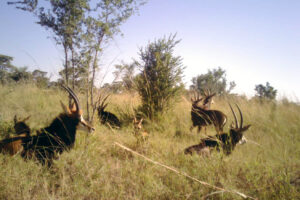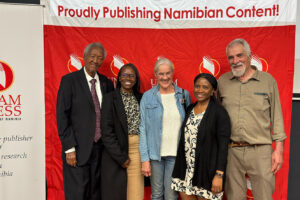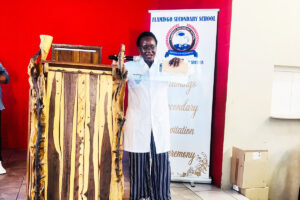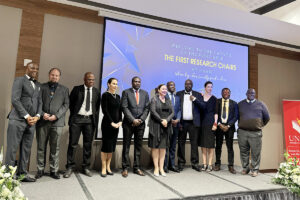Astro-tourism is increasingly becoming the next frontier of nature-based tourism, however, with light pollution on the rise, finding dark and starry skies has become a great challenge – a subject area the Universities of Namibia and Oxford online course focused on.
The course titled: Introduction to Astronomy and Astro-tourism took place between the 24th of August and the 21st of September 2021. The e-learning provided several hundred participants with relevant and theoretical information on astro-tourism in the context of Southern Africa, mainly for local guides to implement and to educate the general public.
Astro-tourism encapsulates activities like stargazing, sharing indigenous star lore, visiting observatories and other astronomy-related sites, and doing astrophotography.
Dr Micheal Backes, Senior lecturer in the Department of Physics, Chemistry, and Material Science remarked that: “In order to make astro-tourism more accessible, researchers working between the University of Namibia and the University of Oxford came together to develop this free, introductory course”.
He further adds that this was particularly important because: “Astro-tourism is a growing market that is sustainable and inexpensive to implement”, said Dr Backes.
The online course covered the topics of:
- Introduction to astronomy;
- Astronomy facilities and research in Southern Africa;
- Astronomy and astrotourism for development;
- Stargazing and indigenous astronomy; and
- Light pollution and dark sky conservation.
The course received 864 registrations, including 295 (30%) and 77 (9%) who are living in Namibia and South Africa, respectively. The majority of registrations came from a tourism (35%) or astronomy (28%) background. People residing in Namibia and South Africa retained a high participation throughout.
To obtain a certificate for their attendance, the participants had to complete some homework assignments and 231 participants were awarded certificates. “Overall, the course reached the desired audience and was thoroughly enjoyed by many” disclosed Dr Backes.
He further mentioned that:” 88% of people who responded to the exit survey commented that they are planning to implement the material they have learned”, he adds.
“The material may be used to produce an (online) booklet in the future and has the potential to be used for further training. It also holds the potential to be translated into different languages and adapted to other regions and cultures of the world”, indicated Dr Baches.
This project was led by Prof. Garret Cotter (University of Oxford), Prof. Michael Backes, and Dr Eli Kasai (both University of Namibia), and the course was facilitated by Dr Hannah Dalgleish (University of Namibia and University of Oxford) and Dr Meghan Hughes (University of Oxford).
The project was funded by the Global Challenges Research Fund and Exeter College, Oxford in the UK and supported by the International Astronomical Union Office of Astronomy for Development (IAU-OAD) and the Namibia Scientific Society.
Course material can be found online at: https://darkskytourism.com/aaa/





